
Attempting to work while receiving Social Security Disability benefits (SSDI or SSI) can feel overwhelming.
With complex rules and strict income limits, it’s understandable to worry about losing your benefits or facing financial penalties when exploring job opportunities. The system is designed to encourage work, but navigating it requires careful planning to avoid unintended consequences.
The Social Security Administration (SSA) has programs and safeguards in place to help you test your ability to work without immediately losing your disability benefits.
In this guide, we’ll break down:
- How much you can earn while still receiving SSDI or SSI
- The Trial Work Period (TWP) and Extended Period of Eligibility (EPE)
- What happens to your Medicare or Medicaid coverage if you start working
- Steps to transition back into the workforce while protecting your benefits
Understanding these rules can help you make informed decisions about employment while maintaining financial security. Let’s dive into the details.
A two-sentence summary of SSDI:
- The enrollment and application process for Social Security Disability Insurance allows for approved beneficiaries (the now disabled workers) to receive benefits to help them financially survive.
- The federal program option is available nationwide, with many rules and limitations in place.
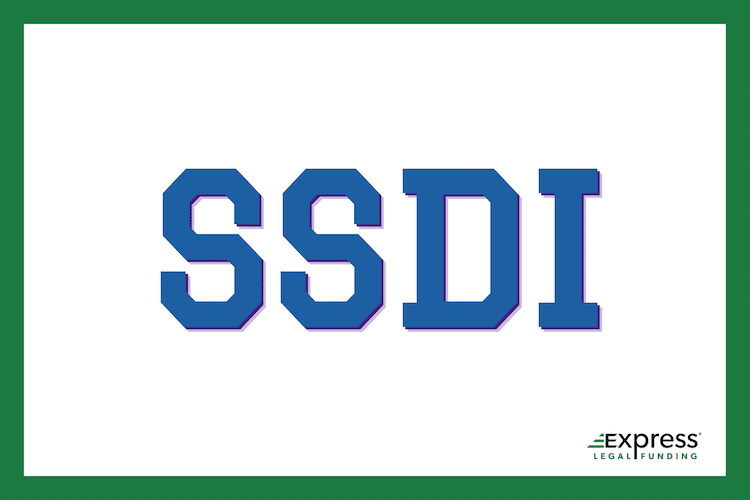
These limitations are strict and put in place by the U.S. federal government to prevent even those people approved from receiving more SSDI benefits than they should.
What Is Social Security Disability Insurance?
Social Security Disability Insurance (SSDI) is a federal insurance program financed through payroll taxes.
The United States Social Security Administration (SSA) oversees the service and focuses on providing monthly benefits to American citizens with a medically determinable disability or impairment.
Despite the name, SSDI is not associated with the original Social Security Act from 1935 but was instituted over 20 years later, in 1956, after years of policy debates.
Since then, the program has offered financial assistance to American citizens whose disabilities prevent them from working as full-time employees.

The program is designed to offer financial benefits for these citizens so they can finance their lives despite working fewer hours than their peers.
Citizens without disabilities can work a whole 40-hour week without difficulty.
In contrast, a citizen with a disability might not be physically capable of matching those hours and will have to work part-time jobs.
A qualifying citizen’s benefits vary by state and circumstances, so no set benefit amount applies to everyone. Furthermore, there is a maximum threshold of how much money SSDI will pay.
Ultimately, the average amount you can expect through SSDI benefits will vary according to your state.
For example, the average monthly payout in Texas is $1,341.37, whereas it is $1,303.18 in Oklahoma.
The reason for these differences is that each state has its own ordinances concerning social programs and will calculate the sums according to the individual’s circumstances.
The calculations performed by the Social Security Administration will determine the exact amount you are eligible to receive monthly.
SSDI is designed to provide financial benefits for American citizens who cannot sustain a full day of work activity until they reach full retirement age (age 65).
The United States government enforces specific criteria through the Social Security Administration to ensure no one takes advantage of the system.
The problem is that the eligibility requirements for SSDI benefits can confuse the average applicant.
Therefore, you might not know whether you qualify if you are still debating whether to apply.
Before we dig into those requirements, we should clear up any confusion about whether or not SSDI and Supplemental Security Income (SSI) are the same thing. They are not.
What is the Difference Between SSI and SSDI?
SSI and SSDI benefits are two different federal programs run by the Social Security Administration (SSA). The primary difference between the two programs is who can qualify for benefits.
Qualifying for Supplemental Security Income (SSI) is based on need and is intended for individuals with poverty-level income that have little to no countable assets and fit into one of the following:
- A person with disabilities (age not a factor)
- Suffer from blindness (age not a factor)
- Are 65+ years old
Qualifying for SSDI is only based on disability and having enough work credits either through one’s own self or family. Unlike SSI, there is no countable asset limit for SSDI.
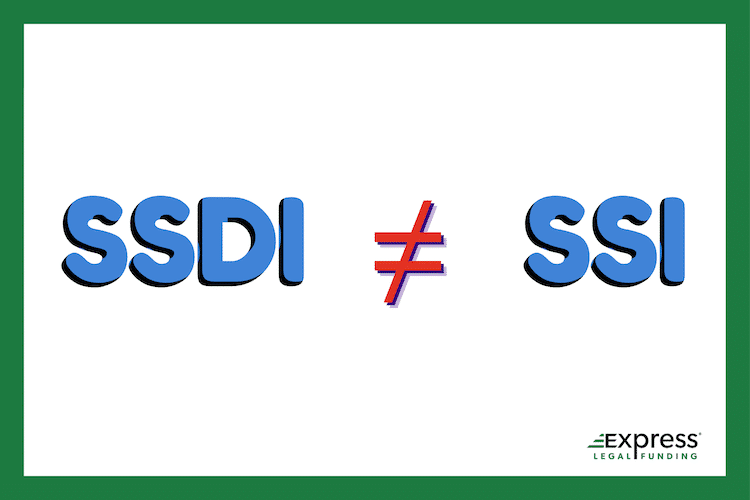
Your countable assets include the total amount of money and the value of your property, with some types of assets being exempt. The exact dollar amount for the countable asset limit is $2,000.00.
A few examples of exempt assets are your home, car, retirement funds, and burial plots, among others.
While SSI is a Welfare Program, SSDI is Not.
That is because American workers and their employers pay for the right to receive SSDI with income and payroll taxes. SSDI, unlike SSI, is not free.
What Pays More, SSI or SSDI?
On average, SSDI pays higher monthly benefit amounts than SSI to approved beneficiaries. In 2025, the average SSDI payment is about three times higher than that of the average monthly SSI benefit.
Can You Get SSI and SSDI At the Same Time?
Yes, you can be eligible to receive both SSI and SSDI benefits at the same time. The Social Security Administration uses the term “concurrent” to denote when a person can receive benefits from both programs.
What Are the Eligibility Requirements for SSDI?
In order for you to qualify as an applicant for Social Security Disability benefits, you must meet the strict eligibility requirements, which include the following overarching guidelines:
- Your work history has earned you the minimum number of Social Security work credits (40 credits, with 20 being earned over the last decade for paying federal income tax).
- You must have a disability, be blind, or have low vision (according to their respective SSA definitions).
- Your disability is severe, and you are either not working or can only do a job that does not include performing a substantial gainful activity (SGA).
What Is the SSA Definition of Disability?
SSA’s definition of disability is very strict and only includes total disabilities and excludes partial and temporary disabilities. The Social Security Administration maintains a list of disability types.
If your disability is not on the official impairment list, you can still be eligible for SSDI benefits.
Disability Determination Services (DDS) are agencies run by the states that are responsible for determining whether you have a qualifying medical condition and can compare the severity of your condition to that of a similar condition as part of your evaluation.
What Is Substantial Gainful Activity (SGA)?
The SSA created the term substantial gainful activity to refer to the type of for-profit work that includes you doing a substantial portion of physical or mental duties (or both) and nets you above a certain amount of income each month.
The money you earn from the substantial gainful activity is countable income.
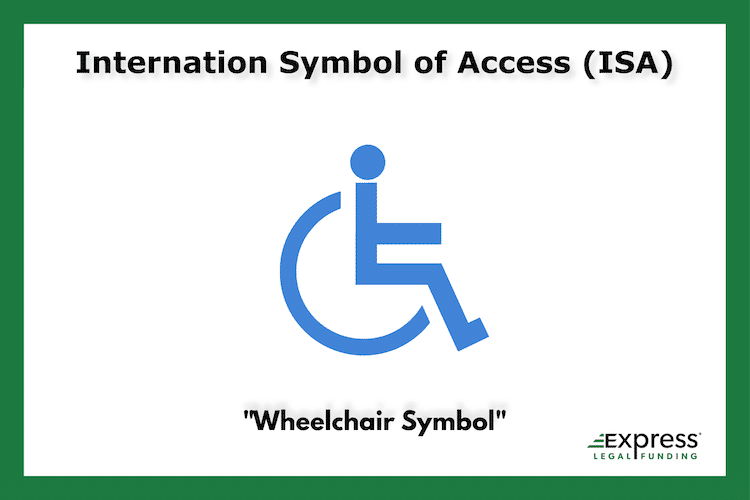
What is the SGA Limit for 2025?
The SGA limits in 2025 are the following:
- In 2025 the SGA amount for non-blind individuals is $1,620 per month (limit applies to SSI).
- In 2025 the SGA amount for people with blindness is $2,700 per month (limit does not apply to SSI).
How Much Money Can You Make On Social Security Disability?
If you are a non-blind person, you are not allowed to make more than $1,620 a month.
So if your monthly income is above the limit are considered self-supporting and ineligible to qualify for SSDI, and your application will be denied.
Similarly, you can get your disability benefits reduced or cut off altogether if you begin making more than $1,620 from doing substantial gainful activities each month.
Conversely, if you are unemployed or working below SGA levels because of a disability, your application should not be denied.
Instead, it will be forwarded to the Disability Determination Services (DDS) for further evaluation.
DDS Assesses Severity of Medical Conditions
From there, the DDS will assess whether your condition is considered “severe” and prevents you from performing basic work-related activities. That includes standing, walking, sitting, or remembering information.
Your disability’s effect on your ability to function must persist for at least 12 months to be considered a qualifying disability.
Alternatively, if your condition is listed in their database of disabling conditions, it will qualify as a disability according to the Social Security Administration guidelines.
From there, it becomes a question of what the disability prevents you from doing.
So you will not qualify if you can complete the same work tasks you did before the disability manifested or another role that can provide you with a self-supporting amount of money.
However, it ultimately falls to your state’s government (and disability judges if you need to appeal) to decide whether you are approved.
The initial approval rates for SSDI are relatively low in most states, which means most people have to appeal the DDS agency’s decision to deny their application.
The Initial SSDI Approval Average for U.S. is 44% Between 2000-2025
While this can be a harsh reality, low acceptance rates point to the system’s design of preventing funds from being allocated to citizens who do not have qualifying disabilities.
However, when someone does get approved for disability payments, they typically have two main questions and concerns going forward:
- How much SSDI will I get?
- Can I lose my SSDI benefits?
First, let’s discuss the “fun part” of SSDI: The monthly cash payments you can get.
How Much SSDI Will I Get?
The Social Security Administration uses your average lifetime earnings (that you paid Social Security tax on) to determine how many SSDI benefits you are eligible to receive.
Unfortunately, for previously high earners, the amount of disability they can get is not unlimited.
What is the Max SSDI Payment?
In 2025 SSDI beneficiaries can receive a maximum Social Security disability payment of $4,018 per month, which is up from $3,822 in 2024.
What Other Benefits Can I Get With SSDI?
In addition to you getting monthly SSDI cash payments, there are other benefits that you can get that are critical to helping you and your family pay the bills and afford health care.
Other benefits you can get while on SSDI include the following:
- Medicare coverage: Medicare is a federally run health insurance program. In essence, free health insurance from the government.
- Return to work incentives: SSDI return-to-work benefits encourage and facilitate people currently on SSDI to return to the workforce and be gainfully employed.
These incentives include the ticket to work program (An employment program offered for free by SSA to help people on SSDI and/or SSI return to work), keeping Medicare, and expedited reinstatement of benefits. - Tax benefits: The SSDI cash benefits are only partially taxable, assuming the beneficiary is part of a household with a high enough income to be taxed.
Even if you have to pay taxes, your SSDI income is taxed at a lower tax bracket percentage. - Family benefits: Each family member of an SSDI beneficiary can receive half of the amount the disabled person receives as part of their monthly benefits.
However, the total amount of cash benefits a family can get caps at about 1.5 times the amount the person on SSDI gets.

Now that we’ve listed the many possible benefits you can gain from qualifying for SSDI, it’s crucial to know if and how you can lose them.
Can I Lose My SSDI benefits?
Unfortunately, you can become ineligible for Social Security Disability Insurance and lose your SSDI benefits. Regardless of your disability, the big reason you can lose your SSDI payments is because you are making too much money.
Now, let’s discuss the crucial particulars you need to know about having an income while on disability so you don’t lose your SSDI eligibility.
How Many Hours Can You Work on SSDI?
The good news is that how many hours you work does not affect your SSDI benefits. The bad news is that your hourly rate does affect your SSDI qualification.
As mentioned previously, the Social Security Administration uses SGA to determine whether a citizen qualifies from an income perspective.
That means you can qualify for SSDI benefits as long as your monthly earned income does not exceed the current year’s limit set forth by the administration.
As of 2025, the limit for non-blind recipients is $1,620.00 monthly (minus disability-related work expenses). That is a $70 increase above the 2024 SGA limit ($1,550.00).
The number of hours you can work is determined by how many hours it takes to make $1,620.00 of gross income in a month.
Example: Working Too Many Hours on SSDI
For example, if you only make $7.25 an hour and work 40 hours a week, that is a weekly income of $290.00, which adds up to a monthly income of $1,160.00 (pre-taxes).
Therefore, you still qualify for SSDI benefits since your income doesn’t exceed the monthly SGA limit.
Conversely, making $10.50 an hour and working 40 hours weekly leads to an average monthly income of $1,680.00, putting you well over the current limit by $60 and at risk of losing your benefits.
That means if you have a $10.50 an hour paygrade, you must ensure you only work around 35 hours weekly to stay within the appropriate range.
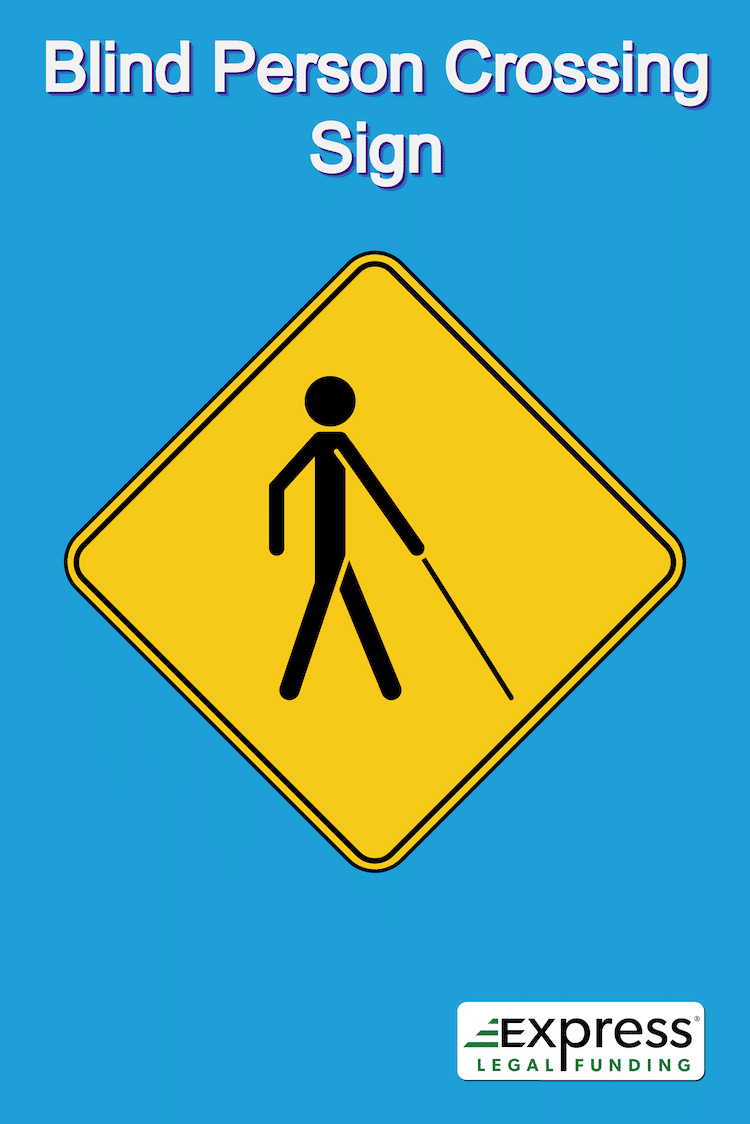
As mentioned earlier, the only exception is a special rule for blind people, which almost doubles the SGA limit set forth by the Social Security Administration.
Ultimately, the maximum number of hours you can work under SSDI is determined by your hourly wage and not the number of hours you work alone.
That means if the amount of hours you are capable of working per week (despite your disability) times your hourly rate is more than $1,620.00, you will not qualify for SSDI benefits.
So if your employer raises your hourly wage or salary without you realizing you could automatically be disqualified, even if you were previously approved.
Can I Be Self-Employed and Collect SSDI Benefits?
Yes, if you are self-employed, you can still collect SSDI benefits. However, similar to hourly and salary-based employees, if your income exceeds the maximum monthly limit, you will no longer be eligible for Social Security Disability cash benefits.
After reading the last two sections about how much you can make while on SSDI, you may be thinking, why would I ever risk returning to work if I could lose my benefits?
Fortunately, the SSA has implemented special work incentives to help people try and go back to work without having to stress over potentially losing their SSDI benefits.
SSDI Return to Work Incentives
One detail seldom accounted for when researching SSDI benefits: How SSD beneficiaries can return to the workforce without automatically losing their benefits.
The SSA has work incentives that are exclusive to SSDI to facilitate disabled beneficiaries who want to reenter the workforce so they do not have to worry about losing their disability benefits.

The exclusive returning to work benefits include the following:
Nine-month Trial Work Period (TWP)
Social Security Disability (SSD) provides a nine-month trial work period (TWP) in a rolling five-year period and is provided by.
The TWP allows beneficiaries to test their abilities to work for nine months (not necessarily consecutive) within five years and still receive full benefits, regardless of their earnings amount.
If you continue working beyond the trial period and your earnings exceed the limit, your SSD cash benefits will likely cease.
However, not all is lost, as there are other work incentives to protect during and even after the 5-year window.
Expedited Reinstatement of SSDI
Although you will lose your SSDI cash benefits after you successfully work nine months, you can get your benefits reinstated without having to start the SSDI application process all over again if your income drops below the SGA limit within three years of your finishing the trial work window.
Moving forward, remember that the Social Security Administration changes these numbers annually to account for shifts in the national economy to determine how much a citizen needs to support themselves.
If you make less than this amount every month, your application will move on to the next stage.
Extension of Free Medicare Coverage
Will I lose Medicare if I start working? No, you can still qualify for free Medicare Part A coverage for 93 months (7 years and 9 months) after completing the nine-month Trial Work Period (TWP) while receiving Social Security Disability Insurance (SSDI).
That means if you successfully finish your TWP in March 2025, you wouldn’t have to worry about paying for Medicare Part A until December 2032. After that, you may be able to keep Medicare by paying a premium or through other coverage options.
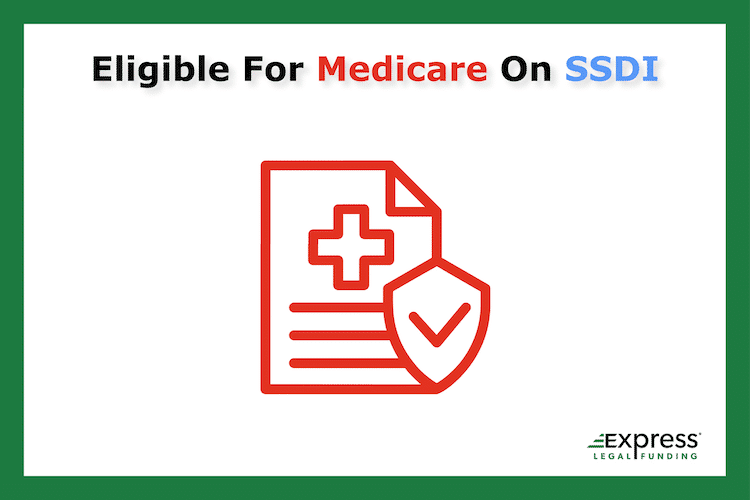
Option to Buy Medicare Coverage
You may qualify to purchase Medicare coverage after the 93 months of free coverage ends. However, you must still be medically disabled to remain eligible.
Does a Personal Injury Settlement Affect SSDI?
No, obtaining a personal injury settlement will not affect your eligibility to receive SSDI benefits. Money from your personal injury settlement (or any civil settlement) is not considered earned income and therefore does not count towards the SGA limit.
The Social Security Administration is only concerned with how much your monthly income is and not the total amount of countable assets you have regarding SSDI. However, it is crucial to note that this is not the case for SSI benefits.
Will a Personal Injury Settlement Affect SSI?
Yes, a personal injury settlement will affect your eligibility for Supplemental Security Income (SSI) benefits.
That is because if you have a personal injury settlement that nets you more than the countable assets limit and doesn’t take the proper steps, such as setting up an annuity, the Social Security Administration will take away your SSI and Medicaid.
To make matters worse, SSA takes this very seriously and can place SSI and Medicaid liens on your settlement (along the same line as how child support services can take your personal injury settlement).
The government expects you to pay even if you have already spent your settlement money.
Disability and retirement benefits can be tricky. It’s a good idea to ask a disability lawyer for help. They can explain things like when to retire and how to switch from disability benefits to retirement benefits.
Do I Have to Report My Settlement to SSDI?
No, you do not have to report a settlement to SSDI, as the Social Security Administration is concerned with the amount of your countable income and not how many countable assets you own regarding whether you are eligible for SSDI benefits.
With all this being said, you may be wondering if you should hire a lawyer to apply for Social Security disability or try applying on your own.
Should I Get a Lawyer For Social Security Disability?
It is advisable to schedule a free consultation and hire a Social Security disability lawyer if you need to apply for SSDI because you have a severe medical condition and are unable to work.

Hiring a disability lawyer will give you the best chance of getting approved for SSDI benefits, as the application process is complicated and far from easy to navigate on your own.
How Much Does a Disability Lawyer Cost?
Like personal injury attorneys, disability lawyers are no-win, no-pay attorneys and do not charge any upfront costs. The most you will owe a disability attorney for representing you is $6,000.00 or 25% of your disability backpay, whichever amount is less.
The best disability lawyers will improve your chances of not getting denied SSDI, so they can, in essence, pay for themselves in the long run.
Closing Statements on Working While Getting SSDI Benefits
We hope you found this a helpful resource guide about SSDI and how many hours you can work while you get disability benefits.
Ultimately, people who qualify for SSDI do so because of a lack of income, which means they need additional funds to help pay their bills and make ends meet as their income has dried up.
Staying on top of your payments is easier said than done, even when you are receiving SSDI cash benefits and free Medicare.
The reality for most people who live off their SSDI benefits means they don’t have much left over to pay for unexpected expenses, such as the cost of emergency car repairs after a motor vehicle accident.
Legal Funding for Personal Injury Lawsuits
At Express Legal Funding, we know firsthand that people find themselves in this situation, SSDI or not, and this is where we can help by providing pre-settlement cash advances to people who have ongoing claims to recover money, such as is the case for plaintiffs who file personal injury lawsuits.
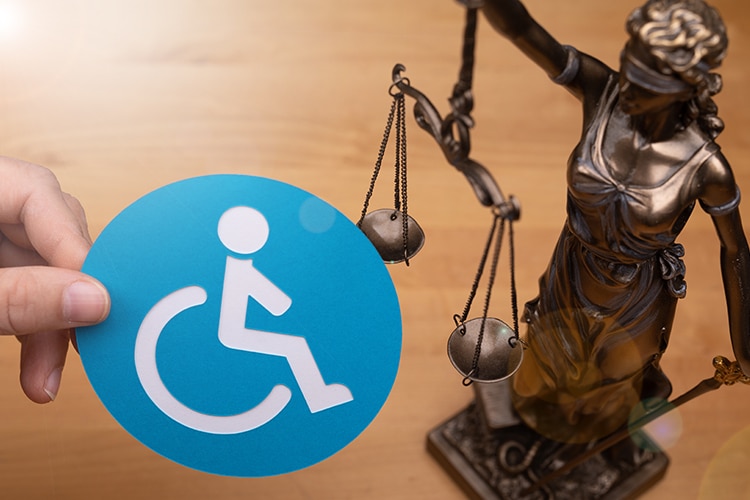
So if you have been in a car wreck and have hired a lawyer to sue the party liable for causing the car accident, yet do not have the extra funds you need to cover while your case is still ongoing and yet to be settled or won you can contact us to apply for pre-settlement funding to help you out in the meantime.
It’s a solution for paying your bills without going into a financial hole.
How the legal funding process works specifically is that it is a cash advance that places a non-recourse lien against a portion of your potential case proceeds and not you, the client. That means it’s risk-free and not a loan.
Payment Comes From Settlement or Court Award
It can’t make you take on personal debt since the legal funding company that advances the pre-settlement funds is only paid from your potential settlement or court award monies (If there are no case proceeds, there is no money for the legal funding company to receive payment from.)
Plus, with it not being considered frequent income, it should not affect your SSDI benefits, as the SSA does not use your countable assets to determine your SSDI eligibility status, which is a crucial win for you when you need money now and can’t wait until after your case ends.
If this sounds like your current financial situation and you are short on cash you need to make ends meet, give us a call or apply online.
Not only can you apply, we encourage you to use it as an opportunity to learn more about how legal funding can help you start your financial recovery while being a 0% risk process.
We are here to answer your call anytime, 24/7, and we look forward to helping you quickly apply for the cash relief you need!
(Missouri consumers: Please note that the type of pre-settlement financing we can provide to injured and damaged claimants in Missouri are recourse loans.
Therefore, they are not risk-free lawsuit cash advances contingent upon potential monies from a settlement or jury-awarded proceeds of a claim.
Pre-settlement loans and car accident loans are recourse loans and must, technically, by law, be repaid. Express Legal Funding-Missouri, LLC is a loan company licensed to give these loans in MO.)



